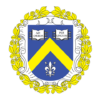Documents
Multilingual Corpus and its Resources European Studies Research
WORK PROGRAM / MODULE
- field of study: Doctor of Philosophy
- field of knowledge: 03 Humanities
- specialty: 035 Philology
- Philologic scientific program: Philology Today: Linguistics, Literary Criticism, and Translation Studies
- discipline status: Professional Training Discipline

The Modules aims at developing competences in the field of the European studies, a science focused on the study of European integration processes, in a philologist-researcher – the holder of the degree of Doctor of Philosophy, for a smoother integration into the multilingual European Higher Education Area (European Higher Education Area) and the European Research Area (European Research Area) through acquisition of
1) the developed knowledge in such areas as political science, EU state policy, European history, European law, European economics, European sociology, European culture, European literature, European languages;
2) the developed skills: ability to systematize texts from the European studies to compile them into a multilingual corpus, to implement the obtained results in the individual scientific research and to publicly present them in the form of oral reports, publications of theses and articles (reviews, analytical) in compliance with the principles of academic integrity, ethical publishing norms, the editorial policy of publications and current requirements for their design;
3) the developed skills: ability to carry out thematic corpus marking of selected texts by the subcorpus and work with ready-made resources of the created multilingual corpus, use its toolware to prepare presentations of the results of own scientific research in Microsoft PowerPoint, Prezi mode and popularize European integration processes in the educational and scientific activities of higher education institutions of Ukraine.
3 ECTS credits; 90 hours
1. A course participant is supposed to possess some knowledge of legal documents that define the orientations of Ukraine’s educational policy for integration into the European educational space, in particular, the procedure for the preparation of higher education applicants for the degree of Doctor of Philosophy and Doctor of Science in higher education institutions (scientific institutions), approved by the Resolution of the Cabinet of Ministers of Ukraine dated 03.23. 2016 No. 261, Procedure for awarding the degree of Doctor of Philosophy and canceling the decision of the one-time specialized academic council of a higher education institution, the scientific institution on awarding the degree of Doctor of Philosophy, approved by Resolution of the Cabinet of Ministers of Ukraine dated 12.01.2022 No. 44, which regulate the process of conducting scientific research and determine the requirements for their presentations in the form of publications of various genres: theses, articles, monographs. A course participant is supposed to understand the standard requirements of the design of
1) a dissertation and its scientific reference apparatus under APA standards,
2) articles submitted for publication in volumes indexed in the scientometric databases Scopus / Web of Science.
2. A course participant is supposed to be able to: work with corpus and other Internet resources to find the necessary information, carry out the thematic selection (marking) of selected texts from the general issues of the European studies, create presentations in Microsoft PowerPoint, Prezi programs to accompany speeches at conferences of various levels, publicize the obtained preliminary results of scientific research, etc.
In order to achieve the Programme Results of Education (PRE) for the Scientific Educational Programme (SEP) in the discipline “Multilingual Corpus and its Resources European Studies Research”, candidates for the degree of Doctor of Philosophy must possess knowledge and skills in the fields of IT, digital and corpus technologies, philology (linguistics, literary studies, translation studies), pedagogy, social communications, philosophy, cultural studies, etc. Knowledge and skills developed in the course study will help demonstrate the high correlation of the learned science discipline. The course permits and the connectivity of the course enables participants to acquire the necessary basic skills for their further studying of the discipline.
The discipline “Multilingual Corpus and its Resources European Studies Research” belong to the list of disciplines of professional training for a Ph.D. student. It is aimed at the generation, accumulation, and systematization of the knowledge of the acquirers in the field of European studies, their implementation in their scientific research (in the form of reports, theses, articles, and individual fragments of a dissertation) with the involvement of the resources of the multilingual corpus created by them and the introduction of the obtained results into the socio-economic life of Ukraine. The course contributes to the expansion of the spectrum of research on European integration, ways of close cooperation between scientists, educators, and other social groups, popularization of knowledge about EU state policy, European history, European law, economy, and internal relations in the EU from academic circles to the political community, mass media and the general public. Within the framework of this discipline, Ph.D. students will be aware of the need to observe the norms of publishing ethics adopted in the European academic environment, primarily academic integrity and the expansion of a general cultural worldview. The module reveals issues related to Ukraine’s European integration aspirations, in particular, the foreign policy orientation of the Ukrainian state constitutionally determined in 2019, and as a result, the legally established status of reforms in all spheres of the country’s life, and above all in the educational and scientific sphere, in order to fulfill the criteria for acquiring a full-fledged EU membership; the module argues the necessity of studying the educational discipline “Multilingual Corpus and its Resources European Studies Research” is argued at the third level of training of candidates for the degree of Doctor of Philosophy under the National Academy of Sciences in the specialty 035 Philology for the study and research of issues discussed in various discourses of European Union Studies, the texts of which will be systematized in a multi-level corpus with its subcorpora; the insights into Europe are formed with help of the multilingual corpus of texts on the European studies using high-tech toolware with thematic marking, and theoretical and methodological principles are developed for working with the resources of the corpus (software), which can be used: to carry out one’s own scientific research with the implementation of the achievements of the European studies in them; for the preparation of educational materials, textbooks, educational dictionaries; for teaching and learning European languages (corpora allow you to build word concordances, obtain data on the frequency of word forms, lexemes, grammatical categories, syntactic constructions, follow and analyze changes in the frequency and context of a language unit in different chronological periods, obtain data on lexical (collocation) and grammatical (colligation) connectivity, characteristic of linguistic personalities of politicians and other public figures of EU countries, etc.); the experience of The EU countries in the training of doctors of philosophy in the field of the European studies is popularized with the aim of introducing it into the educational and scientific process at the third level at KNLU. The Module being rich in the principles of the academic material selection gives the grounds for the scientific research and educational implementations of the European Studies course from different perspectives, the corpus resources are being analyzed along with the possibilities to perform informational queries, the corpus query and informational flow methods being defined for individual research of the course participants and for the purpose of compiling texts in the field of the European Studies, training corpus analysis skills (corpus tools software) in the frame of the complied multilingual corpus for text analysis, where one can find information about European history, European law, European economy, European sociology, European literature, European culture, and the language policy of the EU and European languages; a discourse analysis of the texts of the multilingual corpus is carried out and the corpus methods of analyzing the material for the scientific research of the course participants are tested using the corpus texts data. The best practices of the University Association for Contemporary European Studies (UACES) are fully observed. Their experience is being applied in the preparation of the scientific observations for the conference proceedings of the various levels and also for the gaining the idea of the scientific text as a genre of the scientific publication – the primary scientific text for a future presentation, attention is focused on both the specific aspects of the content of the conference proceedings of the European Studies and the standards of their presentation with accord with rules and practices of the European tradition in the scope of the European Studies.
A step-by-step algorithm is being developed for writing articles in terms of the individual scientific research of the course participants with the involvement of multilingual corpus resources used for preparation for the specialized conference proceedings or publications in Ukraine, for publications indexed in the scientometric databases Scopus / Web of Science. The concepts of impact factor being revealed, indexing, and quartile are revealed, and the optimal structure of a scientific article, common in UACES practices, is characterized in detail, which includes: abstract (Abstract): description of the investigated problem and the obtained research results; keywords (Keywords); Introduction: statement of the problem and its connection with critical scientific tasks; analysis of the latest research and publications (Literature Review): a critical review of the literature with a reflection of the author’s position; formulation of the purpose of the article and its tasks (Aim and Objectives); an outline of the research methodology (Methodology) and main results (Results); discussion (Discussion); conclusions (Conclusions); list of literature (References).
The experience of popularization of the European Union Studies Association and the Arbeitskreis Europäische Integration for the creation of successful startups/projects in Ukraine is studied.
The module reveals the resources of the multilingual corpus for performing discourse analysis of the political speeches of European public figures, for identifying the types of linguistic personalities of politicians from the different EU countries, for studying the strategies of the influence of the European mass media on the general public, for the creation of educational and methodological materials for the educational discipline of the European Studies. The technological process of creating electronic presentations of speeches at conferences of various levels based on the results highlighted in abstracts, articles, and dissertations in Microsoft PowerPoint, Prezi mode is characterized, which includes: acquainting applicants with the requirements for creating an electronic presentation, with methods of information visualization, the degree of correlation text, image, soundtrack. It is planned to conduct training events on the application of the developed innovative methodology of working with a multilingual corpus in the complex of its resources for the study of both the European studies and for the analysis of the material of the individual scientific research of the course participants. The practices of popularizing innovative methodologies for working with corpus resources are analyzed. The best of them are chosen for the wide implementation of the proposed innovative methodology for working with multilingual corpus for the study of other disciplines.
Ukrainian, English
Credit
Alla Korolyova, Doctor of Philological Sciences, Professor, Vice-Rector for Research
Yan Kapranov, Doctor of Philological Sciences, Associate Professor, Professor of the Department of Theory and Practice of Translation from English
Work program
download
Syllabus
download
Project related publications
download
Booklet
download
Newsletters
download
Project Deliverables
download
